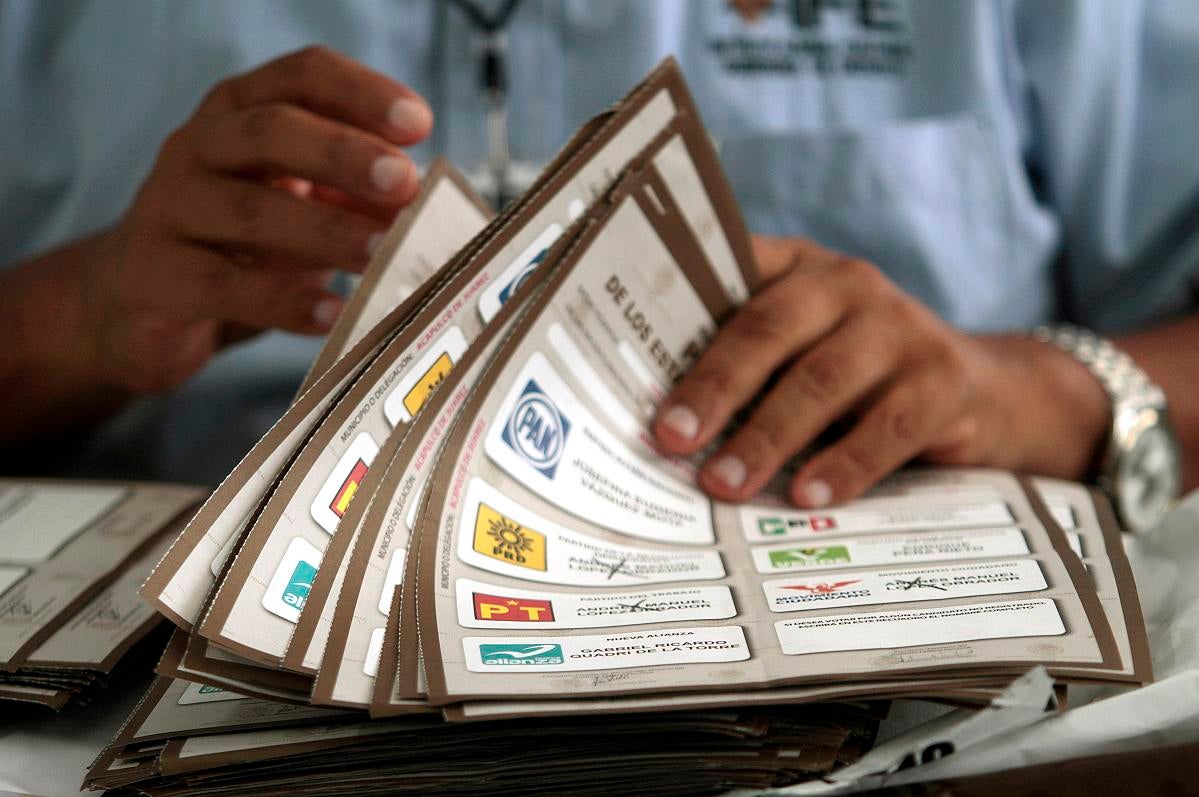Voting problems reported in several states

Americans went to the polls by the tens of millions Tuesday, and although most voted without incident, balloting in several states was hindered by long waits, legal disputes and lingering damage from Hurricane Sandy.
Pennsylvania emerged as a hot spot for Election Day issues. In Philadelphia and outlying counties, voters reported that some election workers required photo identification, despite a judge's ruling last month that placed the state's tough new ID law on hold for 2012. Officials were permitted to ask for photo identification but not as a condition for voting.
Albert Hill, 56, of Philadelphia said that he argued for 10 minutes with a poll monitor who insisted that he would not be allowed to vote unless he showed his photo identification and that he watched two women leave the line in front of him after they were turned away for the same reason.
"I told her, 'If you want to play this game, here is my wallet, and here's my ID, but I don't have to show it to vote,' " said Hill, a former bottle manufacturing company employee. "As of last night, the governor and the mayor of Philadelphia said I don't have to show my ID to vote."
Ron Ruman, a spokesman for the Pennsylvania Department of State, said that his office gave poll workers clear instructions that they could ask for but not demand voter identification, and that he thinks such problems are limited.
"We heard very few scattered reports of this, and we really weren't able to confirm any of it. I don't know for sure what happened," he said. "If poll workers said this, they were mistaken and this should not have happened."
In New Jersey and New York, voters struggled with the residual effects of Hurricane Sandy. As polls opened Tuesday, an estimated 600,000 New Jersey residents still lacked electricity and thousands remained in emergency shelters. New Jersey officials said over the weekend that those displaced by the storm would be able to vote by e-mail. But many voters reported that they did not receive electronic ballots from county elections offices after uploading applications.
In Ocean County, N.J., along the Atlantic Coast, half of the 229 polling places remained inoperable because of storm damage. Election officials improvised by driving a rented Winnebago to shelters.
"We were scrambling, figuring out what to do," said George Gilmore, chairman of the Board of Elections. "We heard about this bus and we grabbed it."
In New York City, officials reported long lines in front of polling places that had been consolidated in the wake of the storm. Voters in the Rockaways and the Bronx were voting in tents powered by generators.
Despite heavy volumes of early voting over the past month — an estimated 35 percent to 40 percent of the electorate cast ballots before Tuesday — many states, including Virginia, Florida, Ohio and Michigan, reported long waits. Civil rights and voter protection organizations said the difficulty voters faced was unacceptable.
"It shouldn't be an endurance sport to cast a ballot in our country," Jenny Flanagan of Common Cause said in a call with reporters. "It should be that going in and voting should take 15 minutes."
Elsewhere, most of the problems seemed to fall under the category of hiccups and glitches.
In Florida's Pinellas County, which includes Tampa and St. Petersburg, more than 12,000 residents mistakenly received robocalls Tuesday morning with a message that they had until 7 p.m. "tomorrow" to turn in absentee ballots. Officials recorded a corrected message, which was went out later in the morning.
In suburban Milmont Park, Pa., Jacqueline Jrolf said she was surprised to see signs hanging in Woodlyn Elementary School, where she voted, requiring that voters show a photo ID to cast ballots. The signs, which referred to a state law that had been put on hold for this election, read: "New state law requires any voter to provide proof of identification."
Jrolf, a ceramic artist and art teacher, said some voters were told to show ID and some weren't. She voted and then insisted that a poll station chief cross out the words on the signs. She said the worker acknowledged that the law was not in effect this year.
Jrolf visited a neighboring polling station, found identical signs, and a polling chief there refused to remove them.
"It's voter suppression," Jrolf said. "He knew it was inaccurate and he wasn't going to do anything about it. This really upsets me."
Penda Hair, co-director of the Advancement Project, which filed the lawsuit to stop the Pennsylvania law, said the state is at fault for allowing poll workers to give incorrect information and display signs with false requirements.
"This is what we feared," Hair said. "We are very troubled because we don't know how many voters were turned away or got discouraged and gave up . . . It seems like this is something the state wanted to have happen."
Other problems plagued voting in some Philadelphia precincts. Hundreds of newly registered Democrats showed up to vote only to be turned away when their names did not appear in records. Election law calls for those voters to receive provisional ballots, and some officials worried that they would run out. According to the Committee of Seventy, a civic group that monitors city elections, a Common Pleas Court judge on Tuesday evening turned down a request from Organizing for America, a grassroots organizing arm of the Democratic National Committee, to order the city to distribute additional provisional ballots.
Earlier Tuesday, a judge ordered that about 75 Republican voting inspectors be allowed into polling places after they had been removed by elections officials.
---
Ann Gerhart and Ann Marimow contributed to this report.
Join our commenting forum
Join thought-provoking conversations, follow other Independent readers and see their replies
Comments
Bookmark popover
Removed from bookmarks